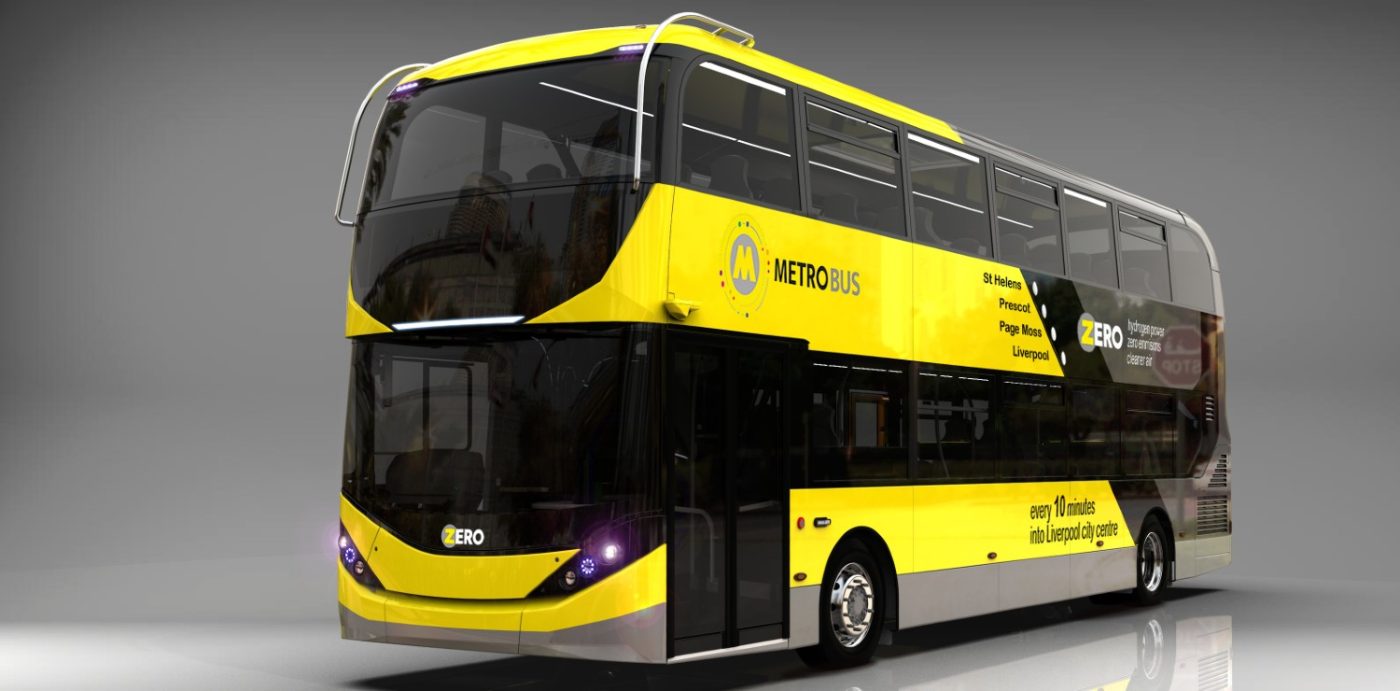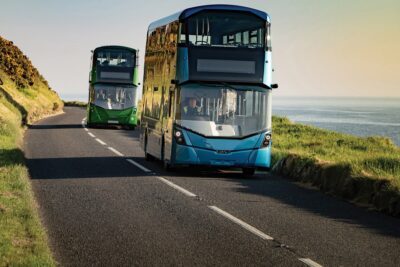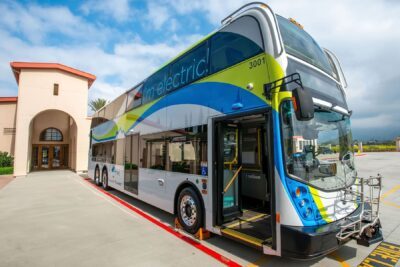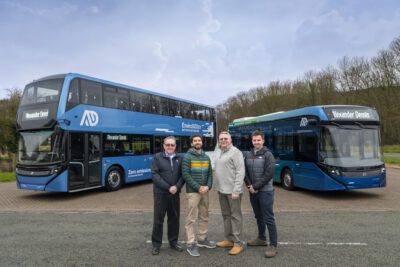Liverpool: ADL receives first fuel cell bus order for the H2.0
The 20 ADL Enviro400FCEV buses are being directly purchased through the Liverpool City Region’s Transforming Cities Fund. Liverpool says the hydrogen bus project is a “key part” of regional Mayor Steve Rotheram’s ‘Vision for Bus’. Plans also include building hydrogen refuelling stations, which Liverpool says will be the first of their kind in the North West. Installation is due to begin later this year. The buses will initially serve the 10A between St Helens and Liverpool city centre, one of the busiest routes in town.
Says Steve Rotheram, Metro Mayor of the Liverpool City Region: “82% of all journeys on public transport in our region are taken by bus, and this new fleet will give people a clean, green and comfortable way to get about.”
Liverpool aims to become net-zero carbon by 2040 and considers the hydrogen buses “an important addition to the region’s existing fleet, which is already more than 70% low emissions.”
ADL President & Managing Director Paul Davies added, “Our next-generation H2.0 platform builds on 25 years of experience in hydrogen fuel cell technology. Designed and built in Britain, these buses will help to secure skilled jobs and apprenticeships across the bus manufacturing industry, which is hugely important as we continue the decarbonisation journey.”
Fuel cell technology made by partners
ADL developed and builds the H2.0 in Great Britain. However, the American parent company NFI, which took over the Scottish bus manufacturer in 2019, has a major influence, not the least through another subsidiary, New Flyer.
At the same time, ADL utilises fuel cell modules from Ballard Power Systems for the new hydrogen bus and the VEDS electric drive system from Voith. The model also “incorporates lessons learned from nationwide testing,” the company said when presenting the platform in March 2021.
German supplier Voith says it has developed the VDES specifically for the requirements of public transport. The 340 kW electric motor can power double-decker, heavy articulated buses and trucks over long distances – the Enviro400FCEV claims a range of up to 300 miles or around 480 km.
While not disclosed specifically in the communications, delivery to Liverpool should begin shortly. The new fuel cell buses will be owned by the people of the City Region, as Liverpool announces.






0 Comments